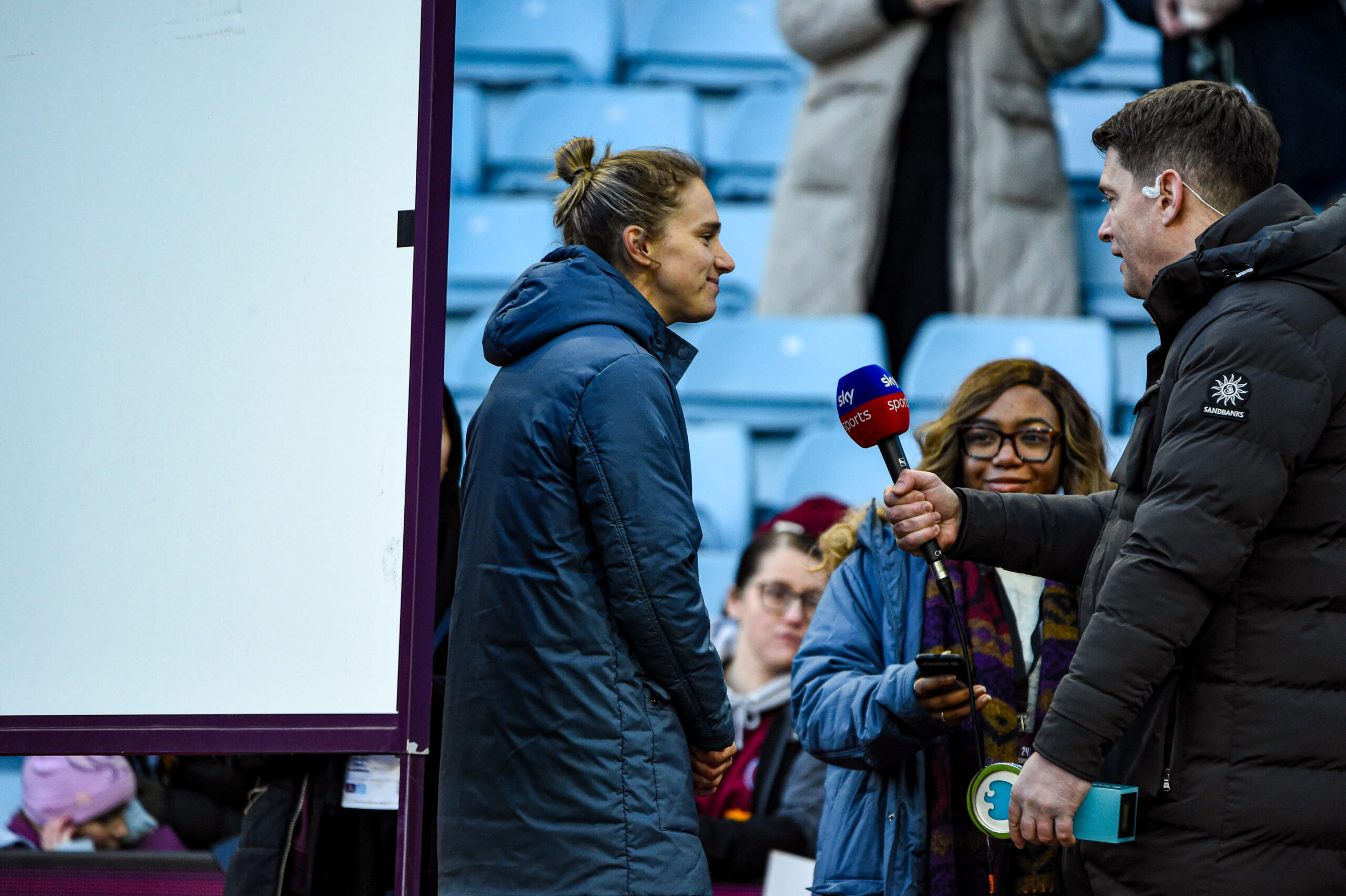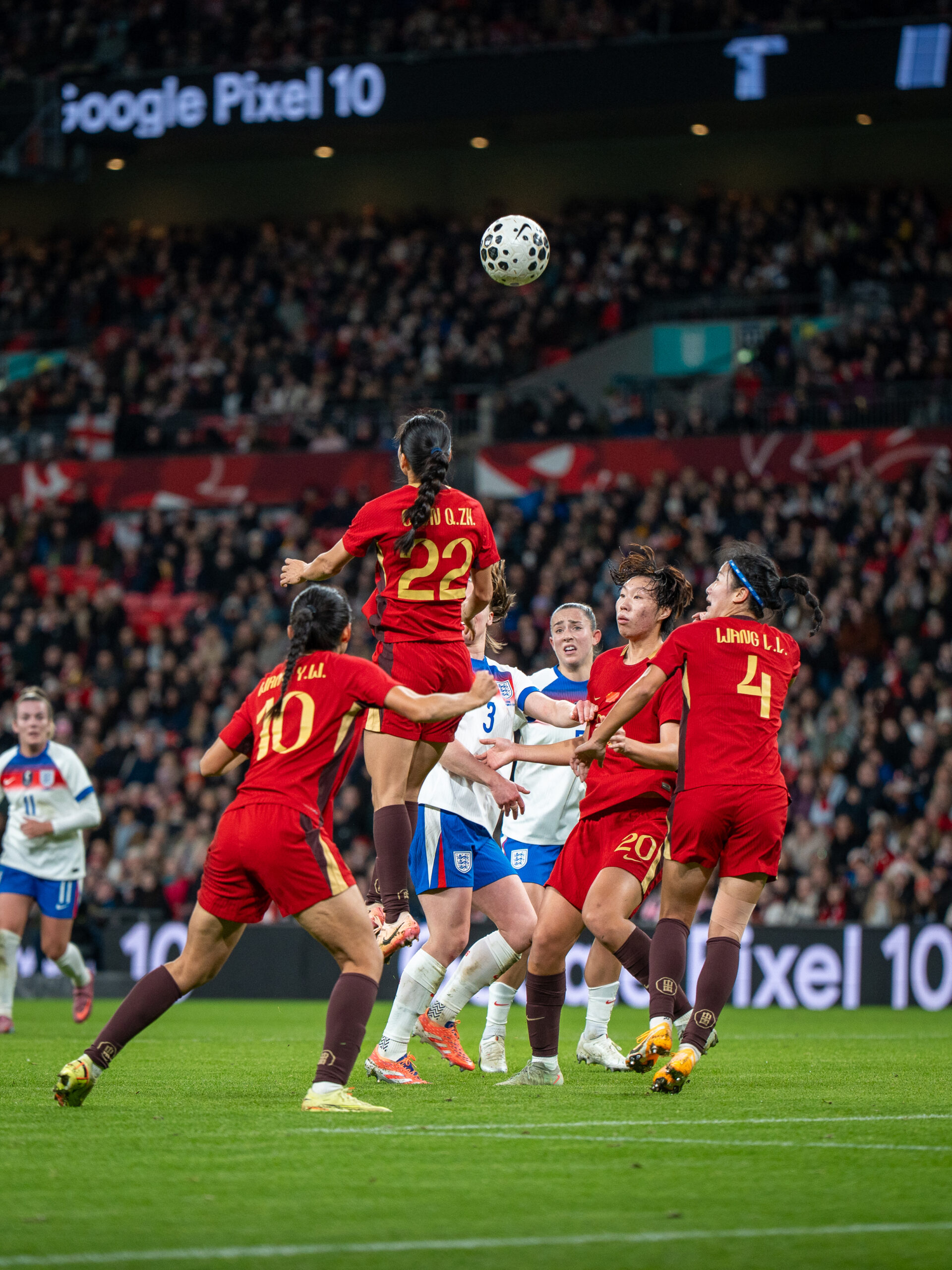The 2025 European Championship marks Vivianne Miedema’s third Senior Euros appearance. After clinching the U19 European title with the Netherlands, scoring the winning goal in the final against Spain, she quickly transitioned into senior football. She made a name for herself during the 2015 World Cup qualifiers, earning her first senior World Cup call-up.
Despite facing setbacks from injuries and struggles with mental health, Miedema made the 2017 European Championship her breakout moment. Playing on home soil, she rose to the occasion, using the pressure to fuel standout performances as the Netherlands lifted the trophy.
As the all-time top goalscorer for the Netherlands, Miedema is widely recognised for her clinical finishing and impressive achievements at both club and international levels. But her impact extends beyond the pitch. She’s become one of the sport’s most vocal advocates for mental health, helping drive conversations around athlete well-being, especially the mental toll of elite competition.
A Role Model Beyond Football
Miedema uses her platform to share her experiences, encouraging openness and support around mental health in sport. Through social media, interviews, and podcasts, she’s consistently expressed how mental health challenges have shaped her career, and why it’s vital to talk about them.
She is also part of Common Goal, a global initiative uniting footballers to make the sport more supportive and inclusive. The campaign ensures players at all levels, from grassroots to professional, have access to mental health resources and education. UK-based players like Molly Bartrip (Tottenham Hotspur) and Beth Mead (Arsenal) are among its supporters, joining voices from around the world in advocating for change.
Miedema is committed to making football a more compassionate and judgment-free space. She regularly encourages both players and fans to speak openly about their struggles, whether with friends, family, or professionals. Her advocacy isn’t just performative; she leads by example.
During the 2022 European Championships and the Tokyo Olympics, Miedema remained optimistic despite her concerns about a packed calendar. However, during the Euros, she contracted COVID-19 and missed two group stage games for the Dutch national team. Still recovering, she also skipped the October international window. Reflecting on that time, Miedema told Arseblog News:
“I had COVID during the Euros which I hadn’t fully recovered from. I think some people just get cold-like symptoms, but I was in bed for ten days with a high fever. I was really sick with it. I needed some time to recover.”
After discussions with both her club and country, she took a break from football:
“I just didn’t feel mentally and physically ready to play, and you could see it in the way I was playing. I wasn’t enjoying football at that moment. And when you stop enjoying it, when you don’t want to go into training in the morning, you need to take a break.”
This candid reflection resonated deeply across the football world, marking a significant moment in normalising mental health breaks in elite sport – especially amid concerns over match congestion and long-term injuries.
A Near-Retirement at 18
Miedema’s struggles date back even further. During the 2015 World Cup in Canada, she nearly retired from football after the Netherlands’ 2–1 loss to Japan. At just 18, the pressure of her first major senior tournament became overwhelming.
Speaking on the Joe Football podcast, she shared:
“I was really close to retiring. When I came home I said I couldn’t do it anymore. I couldn’t deal with the pressure, I didn’t like football, and I told my mum ‘this is done’.”
Coming off a tough club season with injuries and low confidence, she found it hard to integrate into a squad dominated by older, more experienced players. Throughout the tournament, she lost weight and energy, struggling both physically and mentally.
Miedema credits open communication with her club and national team for helping her through tough periods. She now firmly believes in the importance of taking breaks and reducing stigma around mental health in sport:
“Taking breaks from sport is one of the most important things. It prevents depression, reduces anxiety, and helps players feel more refreshed and less stressed.”
She also acknowledges that mental health still carries stigma:
“Mental health is still a big issue because people don’t talk about it—or they’re afraid it’ll be used against them. We need to start creating safe environments where players can say, ‘I’m not okay, I need help, I’ve been struggling with panic attacks or anxiety.’”
Powerful Words and Lasting Impact
On Instagram, Miedema shares messages of support and reflection. One post reads:
“We all live different lives. We all deal with our feelings differently. And that’s fine. Some of us struggle more than others. And although seeking help can be really difficult to do, it’s also extremely strong. Take care of yourselves and others ❤️🩹.”
Her courage to speak out has helped many, not just fans, but fellow players, feel less alone. In a sport often defined by toughness, Miedema has shown that strength also means being vulnerable and human.
https://www.common-goal.org/Stories/Create-the-Space-Launches2023-11-02
https://www.instagram.com/p/DConaONomPP/?utm_source=ig_web_copy_link
https://arseblog.news/?s=vivianne+miedema+sabbatical
https://www.instagram.com/p/DJ8nImpIEWo/?utm_source=ig_web_copy_link
https://www.instagram.com/p/DA8stGUIFjI/?utm_source=ig_web_copy_link



